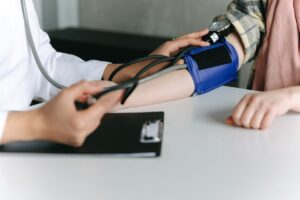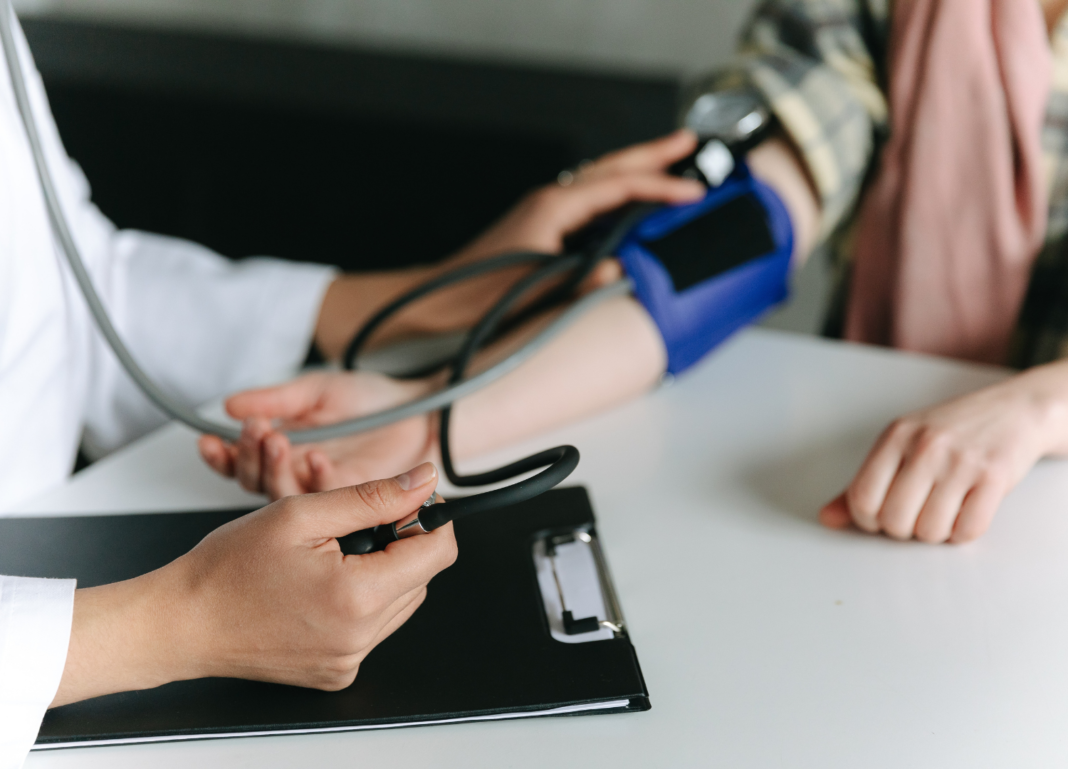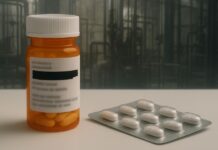Yes, you can treat hypertension naturally – along with a score of other health conditions. But you can’t convince the medical industrial complex people who are “dug in” to their cult-like mantra that the drugs they peddle are the “only” solution to anything that ails you!
No matter the scientific evidence, the mainstream medical profession cries that nutrients don’t do anything, they are a waste of time, a fraud even.
Paul Offit MD (in his book “Do You Believe in Magic? Vitamins, Supplements, and All Things Natural: A Look Behind the Curtain”) claims that even though some popular therapies are remarkably helpful due to the placebo response, many of them are ineffective, expensive, and even deadly.
What a con artist.

Officially, not one single instance of a death due to a vitamin supplement took place last reported year. The latest (2013) from the American Association of Poison Control Centers shows zero deaths from multi-vitamins. There were also zero deaths from all the other vitamins most popular among consumers – vitamin A, niacin, vitamin B-6, any other B-vitamin, folate (part of B complex), vitamin C, vitamin D, vitamin E, or any vitamin at all.
Zero deaths from vitamins but this charlatan says they’re dangerous.
Well over half of the U.S. population takes daily nutritional supplements. If each of those people took only one single tablet daily, that makes about 170,000,000 individual doses per day, for a total of well over 60 billion doses annually.
Since many people take far more than just one single vitamin tablet, actual consumption is considerably higher, and the safety of vitamin supplements is all the more remarkable.
As the great Abram Hoffer, MD, PhD, repeatedly said: “No one dies from vitamins.”
Yet Offit is championing a miserably dishonest, destructive system, which aggressively attacks anyone who suggests that simple, natural truths work and work well.
Folic Acid to Treat Hypertension Naturally
Folic acid supplements significantly decreased risk of first stroke in those with hypertension, results of a Chinese trial showed. In a randomized trial of more than 20,000 participants with hypertension, over 4.5 years, 2.7% of those taking folic acid experienced first strokes, compared with 3.4% of those taking medication alone.
That’s not a 0.7% increase; that’s a massive 20% improvement due to folate (a B “vitamin”) supplementation. Meds can’t equal that.
Patients were an average age of 60. None of the patients had a history of strokes or myocardial infarction. The results were published in the Journal of the American Medical Association on March 15.
This finding is consistent with a benefit from folate use among adults with hypertension and low baseline folate levels. Note that folate is also proven to reduce neural tube defects (like spina bifida) in infants. Nobody knows how.
The thing is, folate deficiency is almost universal, even in countries where is added to foodstuffs by mandate. This trial has implications for stroke prevention worldwide. Large segments of the world’s population, potentially billions of people, including those living in northern China, Bangladesh, and Scandinavia, have low levels of folate.
Critically Important Principle

The experimenters were at some pains to eliminate the effect of folate-related genes, notably MTHFR, one of our outstandingly important genes in the fight against aging and against xenobiotic pollution (methyl-tetra-hydro-folate-reductase).
Participants with the TT genotype (the least efficient) had the highest risk of stroke and the most benefit from supplementation; the most efficient genotype (CC) had the least effect, as you would expect—since they were already metabolizing close to normal.
As Meir Stampfer, MD, and Walter Willett, MD, both of the Harvard TH Chan School of Public Health in Boston, said in an accompanying editorial, “This finding underscores the basic principle that for trials of nutrients, in contrast to most drug trials, the baseline levels are critical to consider, and targeting individuals with low levels of the nutrient under study provides the best test of the hypothesis.”
This is a very important principle and usually totally ignored in research. In fact, it’s critical. With drug trials everyone has zero drugs to start with, so you are truly measuring what the drug does. But with nutrient supplements, every participant already has some and is utilizing it with varying degrees of efficiency.
It’s a whole different story.
Unfortunately, it seems unlikely that genotyping solely for that purpose would be cost-effective, but it does underlie the key principle of personalized medicine.
MORE ABOUT GENOMIC TESTING
Many years ago Roger Williams wrote a book, which became rightly famous. It was visionary for its day: “Biochemical Variability.”
The message still holds good: people are all different, not all the same.
It’s an amazing folly of orthodox medicine that they judge everyone to be the same; they talk about “average” labs, doses, exposures, percentages, and so on.
The joke is nobody – but nobody – is “average.”
No two people have exactly the same combination of genetic and metabolic make-up.
Today orthodox medicine is being forced to wake up to this concept. Doctors (and even holistic practitioners) have no business treating people unless you know their personal quirks and weaknesses.
Significantly, even the FDA got onto this when they declared in 2005 that personalized medicine was the way forward and doctors who did not engage and use it would likely be charged with negligence (didn’t happen though).
Nutrigenomics is a term we apply to the study of how genetic variations affect our metabolism and the way we use and process nutrients, including vitamins and minerals.
Today, with even a simple panel of tests, it’s possible to work out an individual’s risk of cancer, arterial disease, inflammatory status, obesity (yes, genes for that), detox capabilities, antioxidant status, and many other health parameters.
The time has come when my old saying is here again: the commonest cause of death is ignorance. You cannot afford to be ignorant of your own gene make up; it puts you at risk of disease and an early death.
That would be tragic when, for relatively little money, you can have your gene status tested and receive appropriate advice, based on your genome type. (genome: the sum collection of all your genes).
In the meantime, take your vitamins with far more security than your prescription drugs. After all, pharmaceutical companies cannot say no one has died from their products in the last year!




